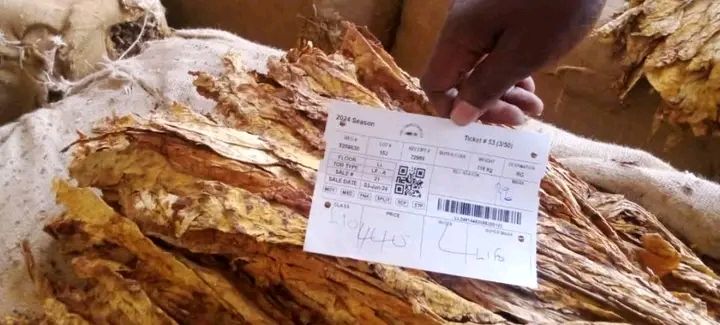Columns
The future of tobacco in Malawi: Economic stability or public health priority?

By Jones Gadama
Malawi, has long been synonymous with tobacco production. The crop has been the backbone of its economy, providing livelihoods for millions and generating significant foreign exchange earnings. However, the global landscape surrounding tobacco is shifting dramatically, driven by increasing health awareness and stringent anti-smoking regulations.
As a signatory to various international agreements aimed at reducing tobacco consumption, Malawi finds itself at a crossroads. The government, under President Lazarus Chakwera, has recently opened tobacco markets, signaling a commitment to the industry that raises questions about the country’s dedication to public health and its ability to diversify its economy.
The economic reliance on tobacco in Malawi cannot be overstated. The crop accounts for a substantial portion of the country’s export earnings, with estimates suggesting that tobacco contributes around 60% of total export revenues. This dependency creates a complex dilemma for policymakers: while the economic benefits of tobacco are undeniable, the health implications are equally significant.

The World Health Organization (WHO) has long warned about the dangers of tobacco use, linking it to a myriad of health issues, including cancer, respiratory diseases, and cardiovascular problems. As a result, many countries are moving towards stricter regulations and even outright bans on tobacco production and sales. Malawi, however, appears to be lagging in this regard.
The anti-smoking lobby has gained considerable traction globally, advocating for policies that discourage tobacco use and promote healthier lifestyles.
Malawi, as a signatory to the Framework Convention on Tobacco Control (FCTC), has committed to implementing measures that reduce tobacco consumption. These measures include increasing taxes on tobacco products, implementing advertising bans, and promoting public awareness campaigns about the dangers of smoking.
However, the reality on the ground tells a different story. Despite these commitments, Malawi has made little progress in enforcing such regulations, and the tobacco industry continues to thrive.
The recent opening of tobacco markets by President Chakwera raises further concerns about the government’s commitment to public health. While the decision may have been driven by the need to support farmers and maintain economic stability, it sends a conflicting message about the country’s stance on tobacco.
By prioritizing the immediate economic benefits of tobacco production over the long-term health implications, the government risks undermining its own commitments to reduce tobacco use. This approach not only jeopardizes public health but also exposes the country to potential international criticism and sanctions.
Moreover, the lack of viable alternatives to tobacco exacerbates the situation. Malawi has struggled to diversify its economy, and the absence of alternative cash crops or industries leaves the country heavily reliant on tobacco. Efforts to promote other agricultural products, such as tea, coffee, and horticultural crops, have not gained the same traction as tobacco.
This lack of diversification creates a vicious cycle: as the global demand for tobacco declines due to health concerns and changing consumer preferences, Malawi’s economy faces increasing vulnerability. The government’s reluctance to implement stricter tobacco regulations may stem from a fear of exacerbating this economic instability.
The challenges of transitioning away from tobacco are further compounded by the socio-economic realities faced by many Malawians. For countless families, tobacco farming is not just a source of income; it is a way of life. The livelihoods of farmers, laborers, and entire communities are intertwined with the tobacco industry.
Any move to ban or significantly reduce tobacco production could lead to widespread unemployment and economic hardship. This creates a significant barrier to implementing effective tobacco control measures, as the government must balance public health concerns with the immediate needs of its citizens.
In addition to economic considerations, there is also a cultural dimension to the tobacco debate in Malawi. Tobacco has deep-rooted historical and cultural significance in many communities, where it is often associated with social gatherings and traditional practices.
This cultural attachment complicates efforts to discourage tobacco use, as it may be perceived as an attack on local customs and traditions. The government must navigate these cultural sensitivities while promoting public health initiatives, a task that requires careful communication and community engagement.
International pressure to reduce tobacco production and consumption is mounting, and Malawi is not immune to these external influences. The global shift towards stricter tobacco regulations is accompanied by a growing recognition of the need for sustainable development practices.
As countries around the world implement measures to combat tobacco use, Malawi risks being left behind if it fails to adapt. The potential for international funding and support for alternative livelihoods exists, but it requires a commitment from the government to prioritize public health and economic diversification.
The health implications of continued tobacco production in Malawi are profound. The country faces a growing burden of non-communicable diseases (NCDs) linked to tobacco use, which places additional strain on an already overburdened healthcare system.
As the population ages and lifestyles change, the prevalence of NCDs is expected to rise, leading to increased healthcare costs and reduced productivity. By failing to take decisive action against tobacco, the government is not only jeopardizing the health of its citizens but also undermining the long-term sustainability of its healthcare system.
Malawi stands at a critical juncture in its relationship with tobacco. The economic benefits of tobacco production are undeniable, but the health risks and international pressures cannot be ignored.
The government’s recent decision to open tobacco markets reflects a short-term focus on economic stability, but it raises serious questions about the country’s commitment to public health and its ability to diversify its economy. As the global landscape continues to evolve, Malawi must confront the reality of its tobacco dependency and take meaningful steps towards reducing tobacco production and consumption.
This will require a comprehensive approach that balances economic needs with public health priorities, engages communities in the transition, and seeks viable alternatives to tobacco. Only then can Malawi hope to break free from the cycle of dependency and build a healthier, more sustainable future for its citizens.






